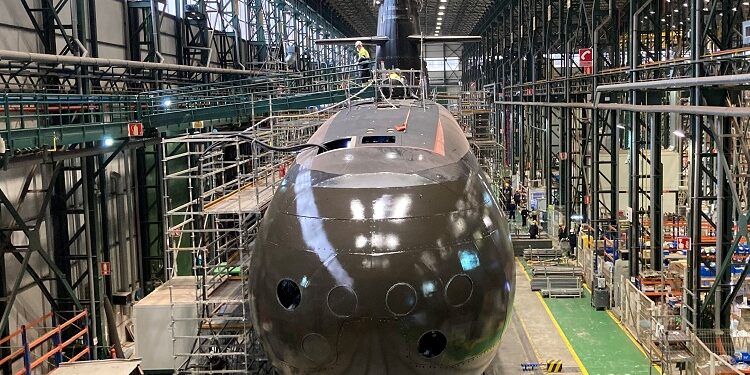The Diplomat
Navantia participates in six research and development projects that have been selected by the European Commission in the call for the 2023 European Defense Fund (EDF) valued at 520 million euros, the company reported.
Specifically, these projects are Epc2, Optimas, Admirable, E=MCM, Seacure and E-Cuas and are part of relevant areas of technological innovation in defense, such as the development of the European Patrol Corvette (EPC), as a joint project associated with Pesco in which Italy, France, Spain and Greece participate.
In addition, Navantia leads two of these projects: Optimas, focused on the development of secure high-speed optical communications links, key for applications such as operations with unmanned vehicles, and Admirable, focused on innovation in materials to improve survival and optimize the construction of naval platforms.
The E=MCM, Seacure and E-Cuas projects focus on capabilities of high importance for the EU and its security, such as, respectively, Mine Warfare, Anti-Submarine and Seabed Warfare and War against aerial drones (UAS).
Meanwhile, the Epc2 project will address the second phase of the European Patrol Corvette, in the context of the Pesco project and with the consortium formed by Naviris, Fincantieri, Naval Group, Navantia and Hydrus.
The initial design of the first phase, a contract that is currently being managed by the Organization for Cooperation in Armaments (OCCAR), will be completed and the prototype of each of the two variants of the new generation multi-role modular corvette will be built.
Navantia leads the Optimas project, which aims to design and develop a prototype of a high-speed free-space laser communications system, to be used with different satellite constellations (LEO, MEO, GEO), with multi-domain application for land, naval and air and the ability to incorporate quantum key distribution (QKD).
The prototype focuses on the demonstration of the high-speed optical link between an unmanned aerial vehicle and a low-orbit satellite. 12 entities from seven countries are participating, including the Spanish Sener, University of Vigo, Das Photonics, Institute of Astrophysics of the Canary Islands and the Center for Pulsed Lasers (CLPU) of Salamanca.
The Admirable project is focused on innovation in advanced manufacturing technologies and composite-based materials, with the aim of improving the operation and reducing the vulnerability of future naval platforms. This project is led by Navantia and includes 10 entities from 5 European nations. In addition to the state company, the Spanish companies Fidamc, Das Photonics and Micromag 2000 participate.
The group is also involved in the E=MCM project which aims to develop a scalable System of Systems for Mine Warfare, including drifting, moored and buried mine threats.
For its part, the Seacure project is dedicated to Anti-Submarine Warfare and Seabed Warfare (Seabed), for which an integrated system of systems based on unmanned vehicles for critical infrastructure protection operations will be designed and developed.
Likewise, the E-Cuas project will develop a system against class I UAS unmanned aerial vehicles, including military-grade drones such as loitering munitions, operating in isolation or in groups.







